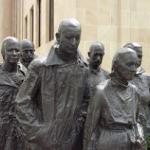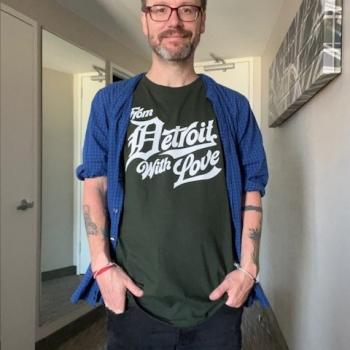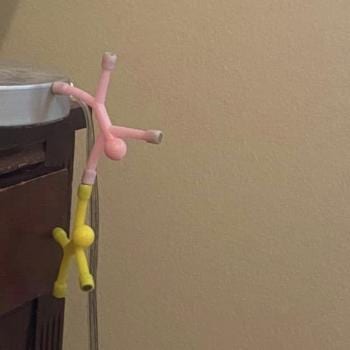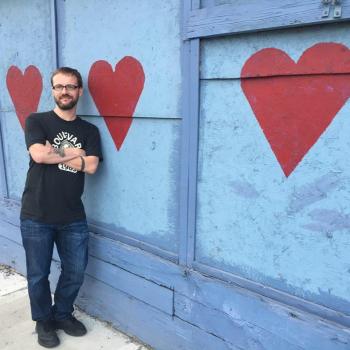“An important aspect of self-compassion is to be able to empathetically hold both parts of ourselves, the self that regrets a past action and the self that took that action in the first place,” -Marshall Rosenberg
Human beings struggle with self-aversion. We struggle with self-attachment too. Sometimes we think we are the worst person we know and we can’t possibly do anything right. Other times we think we’re the best, we’re always right, and it sure is weird people don’t believe in us all the time.
The truth is somewhere in the middle, but our self-analysis is so rarely in the middle.
Today I want to talk about the way we tear ourselves down. The stories we are telling, the painful self-narrative that holds us back. We tell stories about ourselves and who we are. The problem is we come to a point of believing those stories are true. We confuse our thoughts about ourselves with reality. And that’s because at times we have trouble distinguishing observations from evaluations. An observation is a fact about a situation. An evaluation is a judgment.
I had some trouble putting together a cabinet. One of the drawers sticks because I didn’t put it in right. That’s the observation I have of the situation. The evaluation would be that I’m bad at putting together cabinets. Or the evaluation could be something worse. I could think I can’t do anything right. I could think that attention to small details is not a skill I have and not something I can get good at.
There’s this concept called “the second arrow.” It’s this idea that something bad happens to us and that’s like getting hit by an arrow. And then when we obsess about it and our happiness gets spoiled by it, that’s like getting hit by another arrow. We make our problems worse sometimes when we get overwhelmed with panic and worry. I like to look away from the process when I’m getting a new tattoo. Watching that tattoo gun and ink go in actually makes the pain feel worse. That’s the second arrow. The first arrow is the pain. The second arrow isn’t a literal arrow, it’s all the baggage we bring into the situation that makes it a bit worse.
In ‘A Fearless Heart’ Thupten Jinpa, PhD and former monk, writes, “Suffering is an inescapable part of our reality and the sooner we can develop a healthy relationship to it the better off we will be.”
The second arrow is that unhealthy relationship to suffering. It’s when something bad happens and we think “why is this happening to me?” or worse, “I must deserve this.” The second arrow doesn’t help.
So, what can we do?
Jinpa goes on to say, “To be truly kind and compassionate toward ourselves, we need to examine how accepting and forgiving we are of ourselves.”
To go back to my example. I can be mad at myself for messing up this cabinet. I have difficulty with one of the drawers every time I open it. And I can tell myself, “Daniel, you’re so bad at this.” Or I can forgive myself. I can remind myself I did my best and mistakes happen because we’re all not perfect. Or I could even take this cabinet apart and put it back together. Of course I really don’t want to do that. So I have to remind myself that I’m making a choice there. There is something I can do about it besides just cursing my past self for making an error.
We’ve all done much worse things that failing to put together a cabinet properly. And that’s something to take a moment to reflect on. We all have. Every single one of us. Does it mean we’re bad people? No it does not. It just means we’re people.
Jinpa also says, “When we have feelings of resentment or enmity toward someone, we cannot generate genuine compassion for that person. The same is true for ourselves.”
If you’re beating yourself up all the time for past mistakes, I’m giving you permission to knock it off. Do what you can to apologize (even if it’s just to yourself!), make amends where you can, or just stay away from someone you’ve harmed if that’s what they want you to do. Learn from your mistakes and try to observe the situation rather than make big bold judgments about yourself.
Jinpa says, “Through understanding and acceptance we empathize with ourselves, not only for the thing we did, but for the painful way we reacted to it.”
That’s something to think about. We make our problems worse for ourselves. If nothing else, we can work to stop doing that.
So, what if we have big regrets? What if we’ve done things we really wish we could take back, things that make us look down on and judge ourselves?
Here are some informal practices for self compassion:
1) try to be more aware of any negative, self critical thoughts and self talk
2) Remind yourself that these are just thoughts, constructs, and interpretations, not facts
3) Explore ways in which you can replace negative judgments with more compassionate ones.
You can just reflect on these tools and think about how you can bring them into your awareness.
===============================================
Upcoming Events
3/13/22 10:30am @ Rime Buddhist Center on ZOOM
Talk: Compassion and Well Being
I’m giving this talk as part of the Rime Center Sunday Service. The Sunday service consists of various chants along with short periods of meditation, music consisting of singing the Tara and Chenrezig mantras, a guided meditation, and concludes with a short Dharma talk. This is going to be streamed on the zoom platform. Sign up here to register and get the zoom link:












